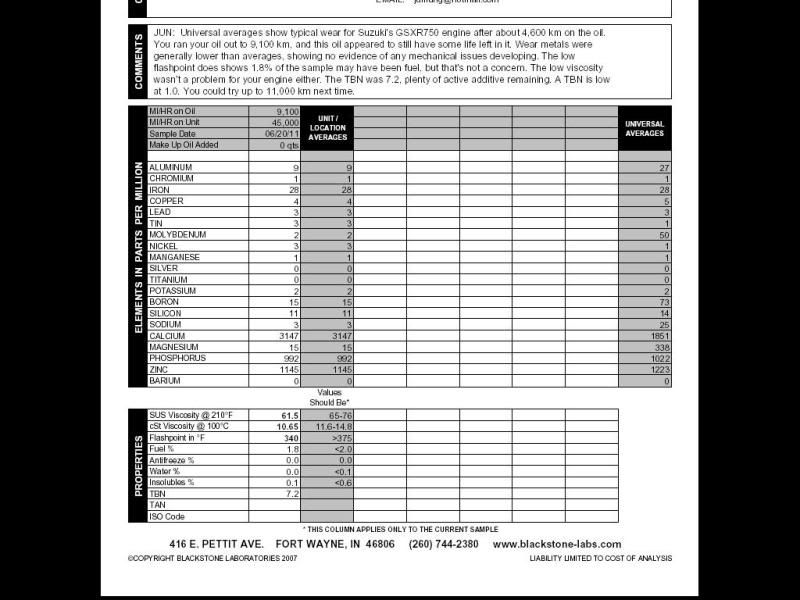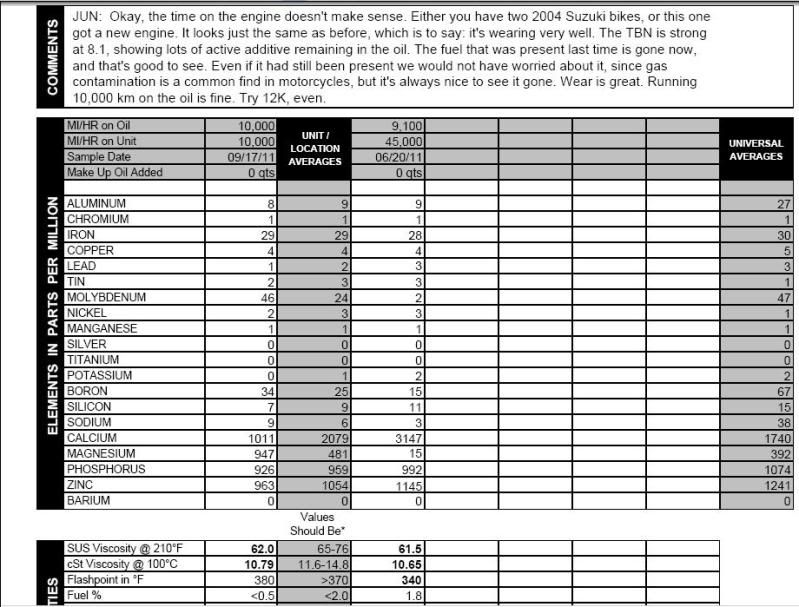I did an Oil Analysis at Blackstone Labs. Great people to deal with. They actually called me to discuss the results, I was really impressed because they actually take their time to discuss the results and give professional opinions.
The oil I used were Amsoil 10w-40. They were not motorcycle specific, but they were JASO-MA certified for wet clutch. I use synthetic oil and only change them around 10,000kms. To get a good gauge on how well things are going, I decided to get professional results and here they are:

They even went on to say that I can safely run my oil until 11,000km. There are still lots of additives remaining in the oil. So for those who are doubtful about running synthetics for that long, here is your answer.
edit: The only problem seems to be the viscosity of the oil. They say there is shearing of the oil, but that is natural for a high rpm engine.
The oil I used were Amsoil 10w-40. They were not motorcycle specific, but they were JASO-MA certified for wet clutch. I use synthetic oil and only change them around 10,000kms. To get a good gauge on how well things are going, I decided to get professional results and here they are:

They even went on to say that I can safely run my oil until 11,000km. There are still lots of additives remaining in the oil. So for those who are doubtful about running synthetics for that long, here is your answer.
edit: The only problem seems to be the viscosity of the oil. They say there is shearing of the oil, but that is natural for a high rpm engine.
Last edited:

